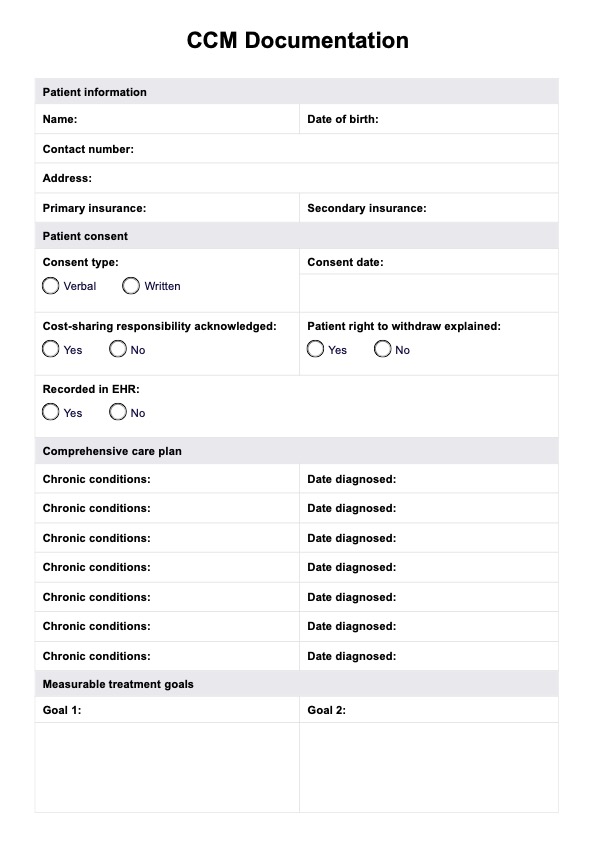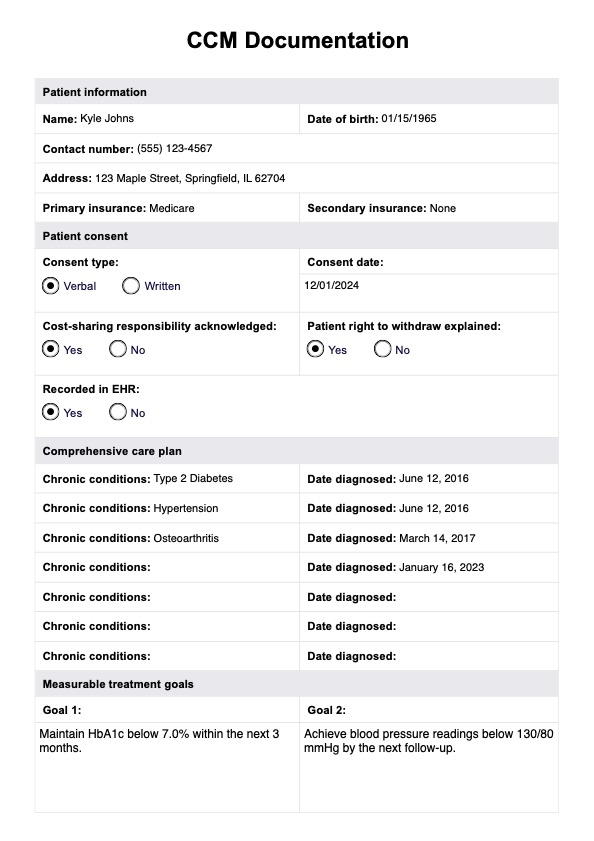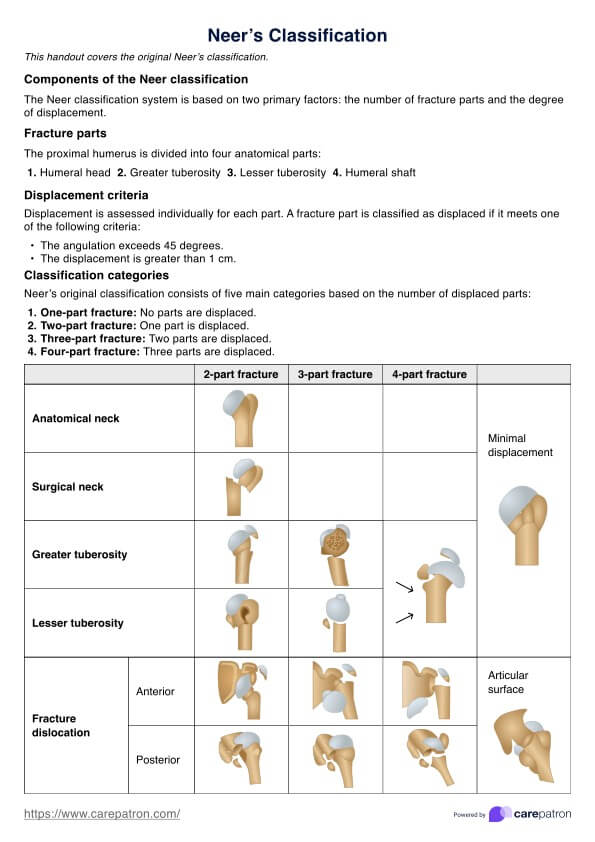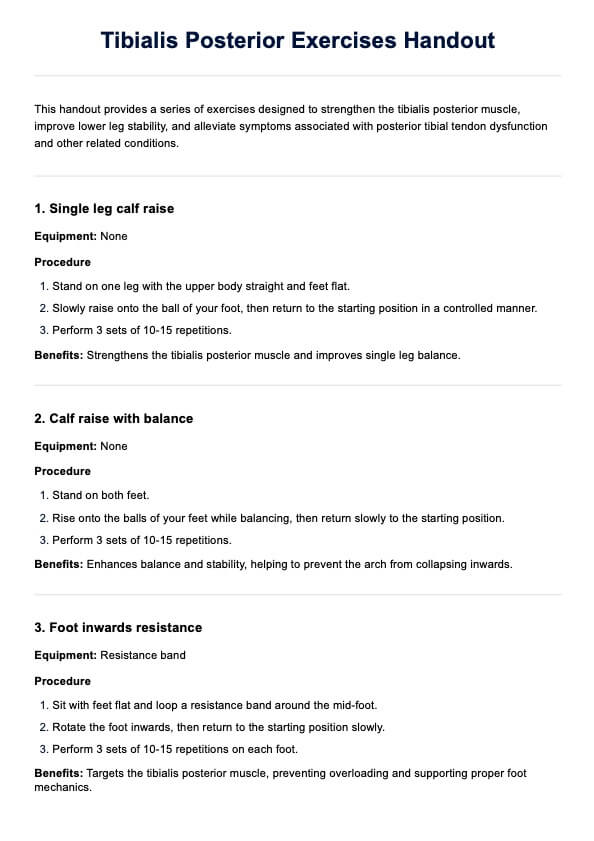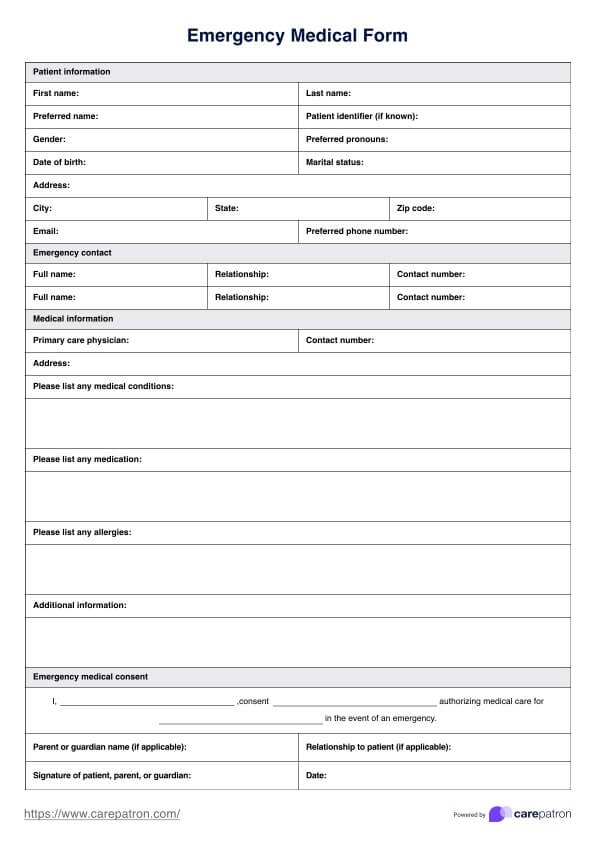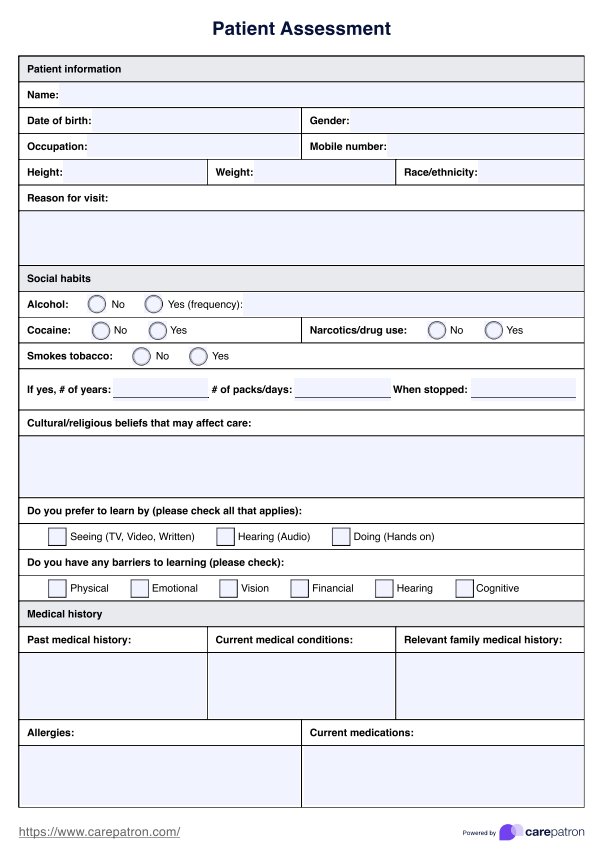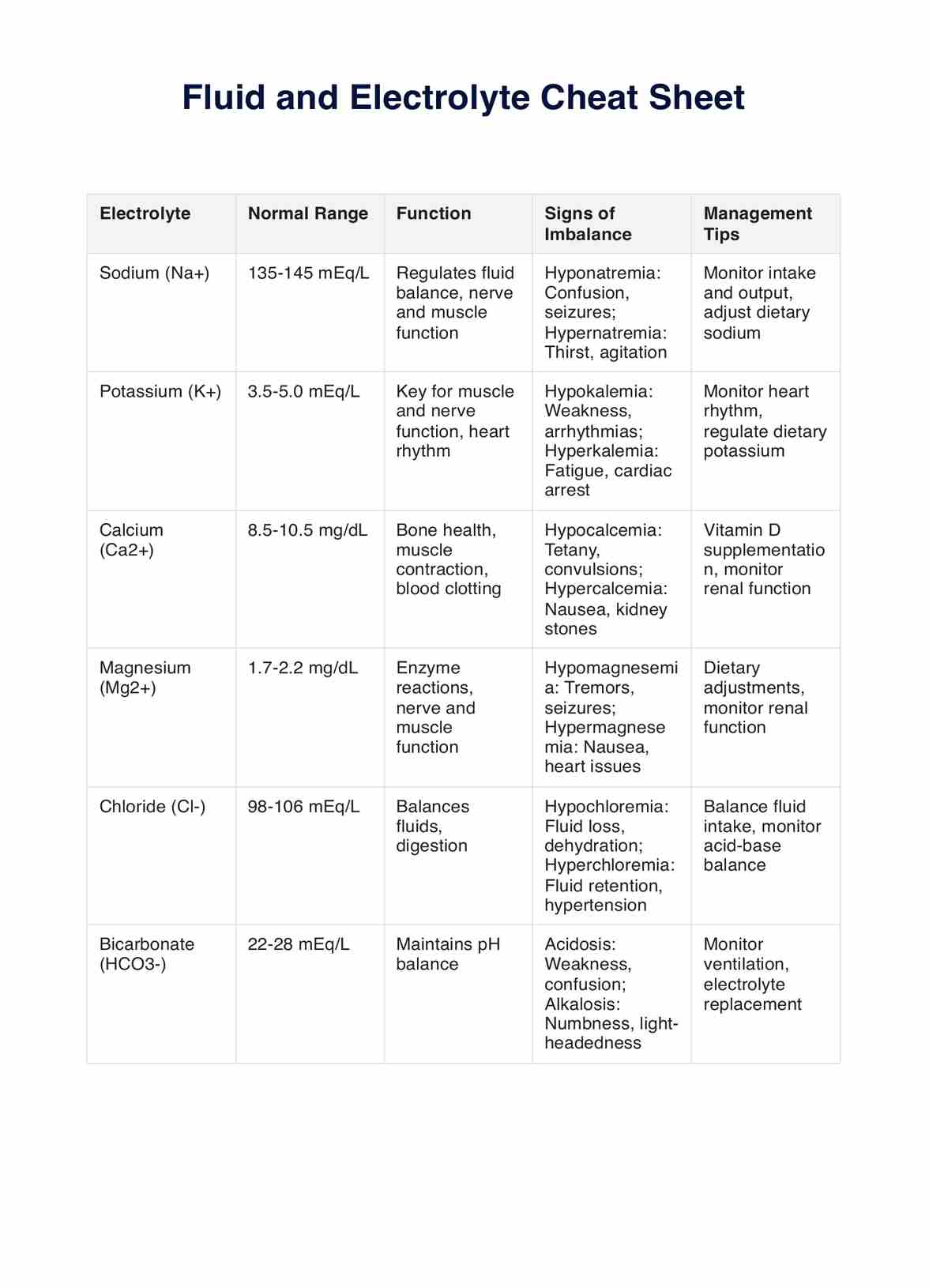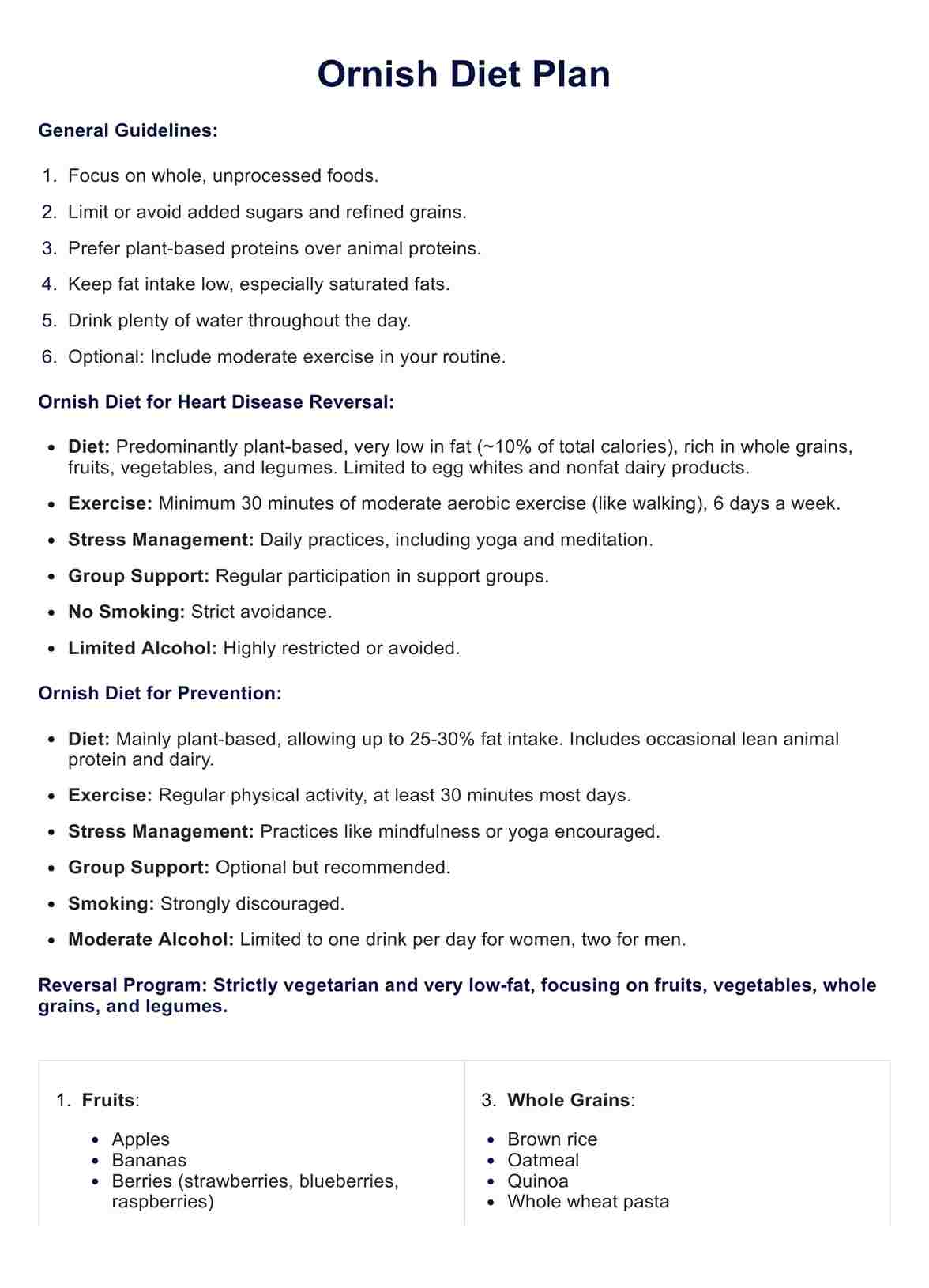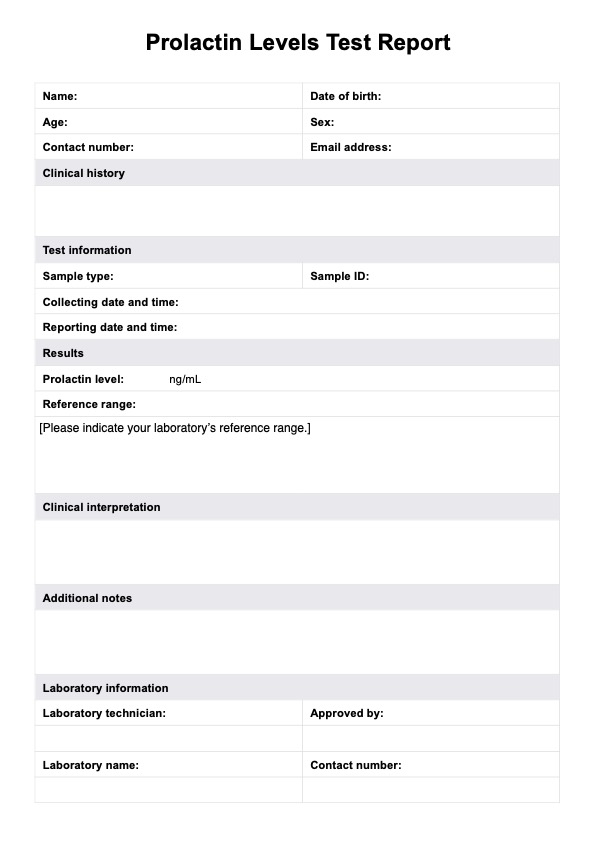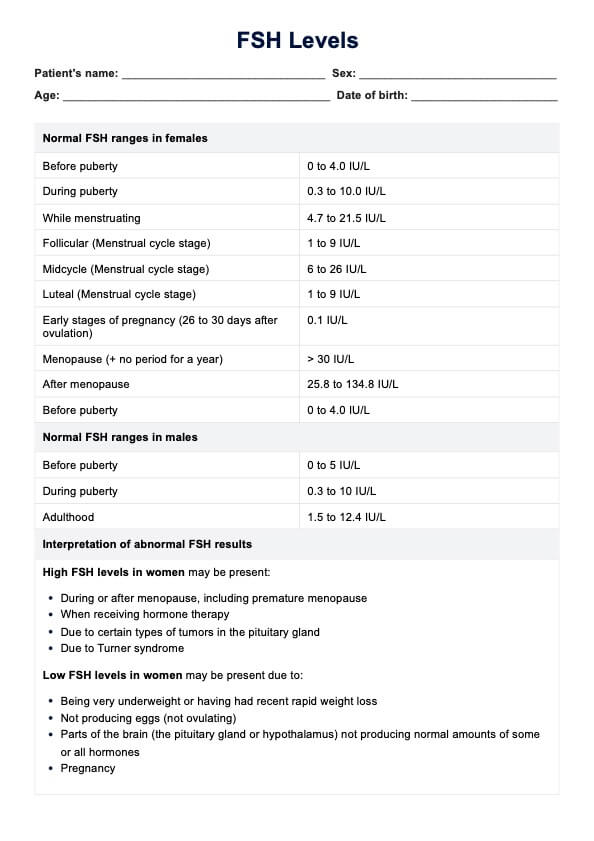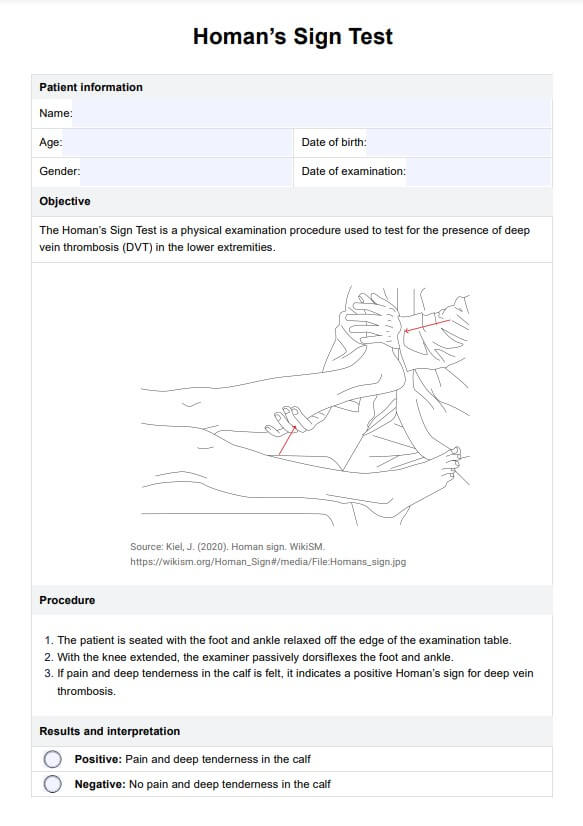CCM Documentation
Elevate healthcare efficiency with comprehensive CCM Documentation solutions, ensuring seamless patient care and streamlined processes for providers


What is a CCM Documentation template?
A Chronic Care Management (CCM) Documentation template is essential for healthcare providers and clinical staff delivering CCM services. It simplifies the CCM documentation process, providing a standardized format for recording and organizing critical patient information related to chronic conditions expected over time.
This structured resource enables qualified healthcare professionals and other qualified healthcare providers to efficiently manage patient data, including demographics, health history, care plans, and interventions. By promoting consistent and thorough documentation, the template supports improved patient outcomes in CCM programs.
Integrated within electronic health records, the template is user-friendly and adaptable, saving time while ensuring accurate and complete records. It streamlines care management services for patients with complex needs, including those requiring medication management and ongoing monitoring.
For federally qualified health centers and practices delivering Medicaid services, this template is an invaluable resource for both general and complex CCM services. It empowers healthcare professionals to focus on enhancing care quality rather than being burdened by administrative tasks.
CCM Documentation Template
CCM Documentation Example
How does it work?
The CCM Documentation template is a user-friendly tool designed to simplify the chronic care management process for healthcare practitioners. Here is a quick guide on efficiently utilizing this resource, ensuring a seamless experience in delivering patient-centric care.
Step 1: Access the template
Open the Chronic Care Management (CCM) Documentation Template by clicking "Use template" on this page, which opens the template on Carepatron app's template editor. This resource serves as a guide for healthcare professionals to efficiently document care plans, interventions, and patient progress within a chronic care management program.
Step 2: Identify patients eligible for CCM
Use the electronic health record (EHR) system to identify patients with two or more chronic conditions that are expected to last at least 12 months or pose a significant risk of health deterioration. These patients are ideal candidates for receiving CCM services.
Step 3: Obtain patient consent
Before initiating care management services, secure informed consent from the patient. Document the consent, including acknowledgment of Medicaid services cost-sharing responsibilities and the patient’s right to withdraw from the program at any time, in the electronic health record.
Step 4: Complete the comprehensive care plan
Work with the care team, including clinical staff, clinical nurse specialists, and other qualified healthcare professionals, to develop a thorough care plan. This should list all chronic conditions, define measurable treatment goals, outline interventions, include medication management, and coordinate with other care providers.
Step 5: Track clinical staff time
Accurately document the minutes of clinical staff time spent on non-face-to-face activities each month, such as reviewing records, updating care plans, and coordinating care. A minimum of 20 minutes is required monthly to bill CCM services.
When would you use this template?
The CCM Documentation template is essential for healthcare practitioners managing patients with chronic conditions expected to require ongoing care. It is particularly valuable for physicians or other qualified health care professionals, nurses, and care coordinators involved in chronic care management programs. This resource is key to delivering consistent, high-quality care and achieving a successful CCM program.
Chronic care enrollment
Use the CCM Documentation template during the enrollment process for CCM programs to capture critical patient information, including details obtained from an initial preventive physical exam. This documentation kickstarts the development of a personalized care plan while ensuring compliance for Medicaid services and billing CCM services requirements.
Routine patient visits
Incorporate the template during routine patient visits to document vital signs, health assessments, and care plan updates. This structured approach ensures physicians or other qualified health care professionals maintain consistent, detailed records while providing CCM services for patients with chronic conditions.
Care coordination
Employ the CCM Documentation template for care coordination efforts, particularly when working with rural health clinics or collaborating across the care team. This promotes seamless communication between qualified healthcare professionals, enhancing cohesive and patient-centered care delivery.
Follow-up appointments
Utilize the template during follow-up appointments to track patient progress, reassess goals, and make care plan modifications as needed. This dynamic approach ensures care aligns with the evolving needs of patients and supports billing CCM services efficiently.
New patient onboarding
Integrate the template into the onboarding process for new chronic care patients. Physicians or other qualified health care professionals can quickly gather detailed patient information to provide CCM services and establish a proactive, tailored care plan from the start.
Patient education sessions
Leverage the CCM Documentation template during patient education sessions. The structured format helps qualified healthcare professionals effectively convey critical information about chronic conditions, medication management, and lifestyle changes, improving patient understanding and engagement.
Quality reporting
Use the completed templates to meet Medicaid services documentation requirements and quality reporting standards. This practice supports data-driven insights, compliance, and the success of your CCM program while ensuring chronic care management efforts deliver measurable results.
Benefits of having this template
The CCM Documentation template offers healthcare professionals an efficient and organized solution for managing chronic care patients while improving workflows and patient outcomes.
Improves care coordination
The CCM Documentation template enhances communication among the care team, including physicians or other qualified health care professionals. It ensures seamless information exchange, which leads to better coordination and management of chronic conditions expected to require ongoing care.
Enhances billing accuracy
Using the template supports billing CCM services by ensuring that all necessary documentation is accurately recorded. This reduces the risk of errors and enhances compliance with Medicaid services and other regulatory requirements.
Saves time for clinical staff
The structured format streamlines the documentation process, saving valuable time for clinical staff. By providing a consistent framework, the template allows healthcare teams to focus on delivering quality care to patients with chronic conditions.
Supports better patient outcomes
With standardized documentation, healthcare providers can track progress effectively, update care plans efficiently, and deliver patient-centered care. This consistent approach improves patient outcomes and ensures a successful CCM program.
Ensures compliance with care standards
The template helps physicians or other qualified health care professionals adhere to Medicaid services and CCM program guidelines by ensuring all documentation meets regulatory and quality standards. This minimizes compliance risks and promotes consistent care delivery.
Commonly asked questions
A "qualified healthcare professional" refers to a physician or other qualified healthcare providers who are authorized to manage chronic care for eligible patients. These professionals work closely with the patient’s primary care team to deliver effective care management services.
Functional decline in patients can be monitored through routine assessments and consistent updates to the patient's medical record. By evaluating changes in physical and cognitive abilities, healthcare providers can adjust care plans accordingly to address these concerns.
Patient consent is critical to ensure the patient’s understanding and agreement to participate in chronic care management services. Healthcare professionals should secure documented consent before starting CCM, including acknowledgment of any cost-sharing responsibilities and the patient's right to withdraw from the program at any time.


